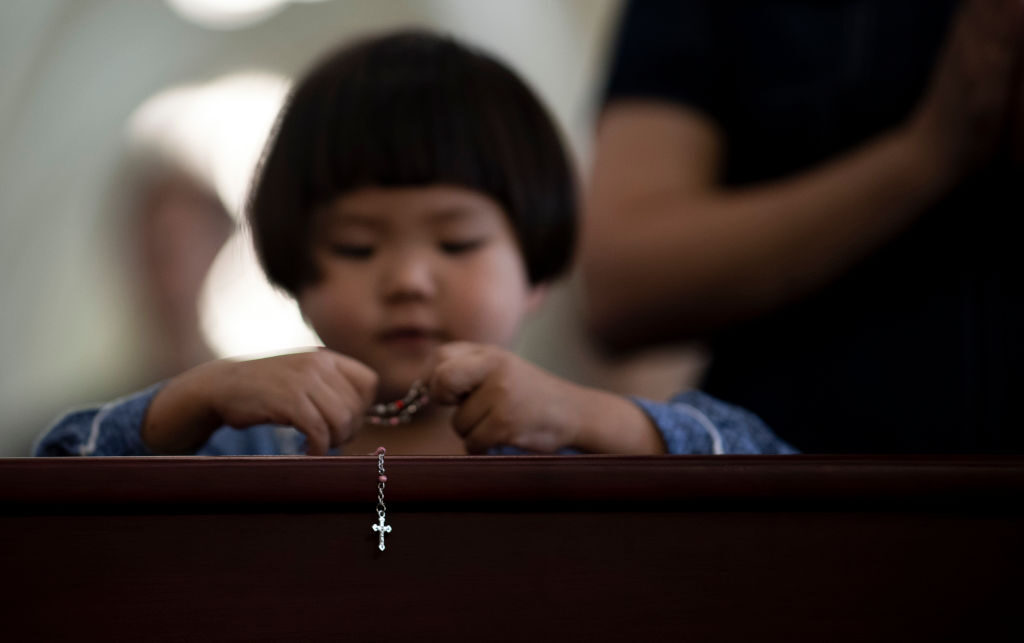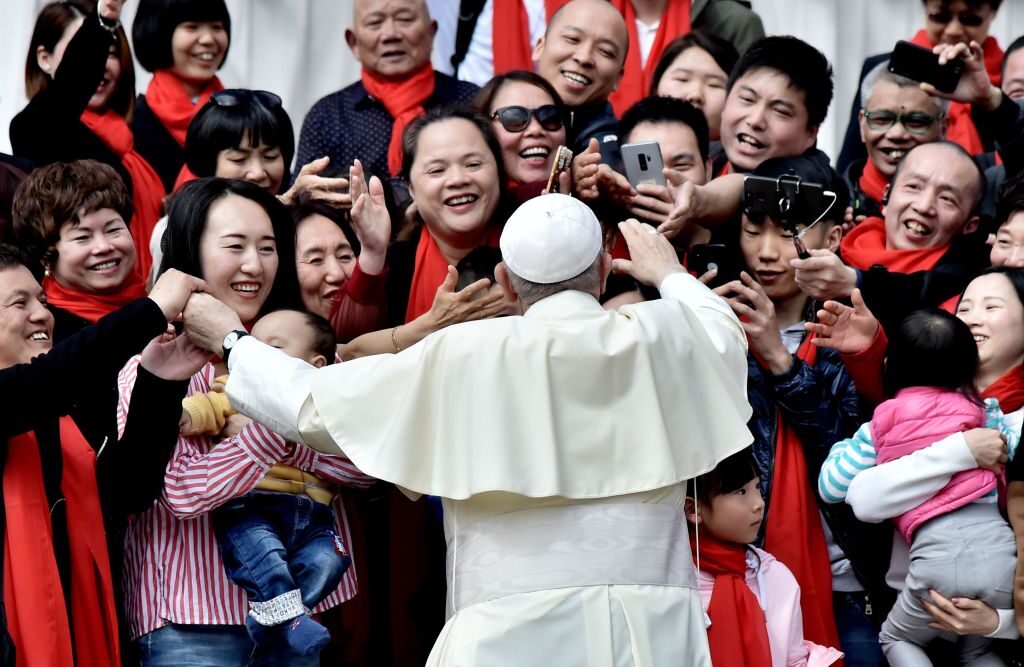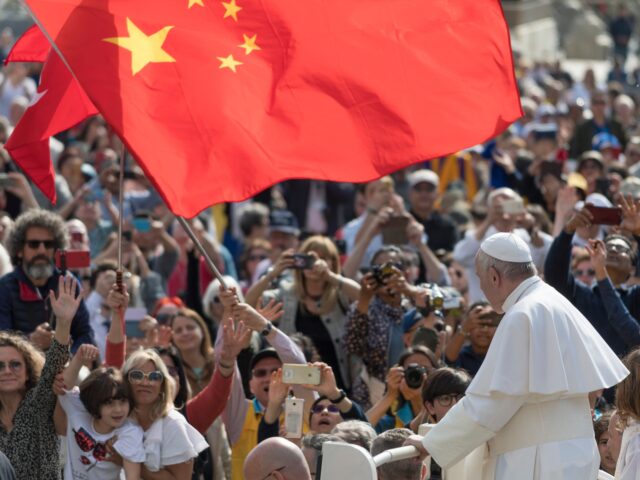ROME — Two prominent Vatican cardinals have voiced support for the renewal of the controversial 2018 accord between the Holy See and the Chinese Communist Party (CCP) on the naming of bishops.
Both Vatican Secretary of State Cardinal Pietro Parolin and Cardinal Luis Antonio Tagle, Pro-Prefect for the Vatican’s Dicastery for Evangelization, came out in support of the deal, which has been widely criticized as a betrayal of Chinese Catholics faithful to Rome.
“History teaches that the Holy See has often come, in the delicate and important matter of the appointment of bishops, to reach an agreement on procedures that take into consideration the particular conditions of a country, without however failing in what is essential and fundamental for the Church, namely, the appointment of good and worthy pastors,” Cardinal Parolin stated in an Oct. 22 interview with Vatican News.
The hope of the accord for millions of Chinese faithful is that “they will be able to live out their faith in full Catholic communion, without thereby being suspected of not being loyal citizens to their country,” he states.

File/A young Catholic attends a mass at the government-sanctioned St. Ignatius Catholic Cathedral in Shanghai on September 30, 2018. (JOHANNES EISELE/AFP via Getty Images)
In his defense of the deal, Parolin attempts to link the accord to the “the path of constructive dialogue with China” undertaken by Popes St. John Paul II and Benedict XVI, while failing to note that these pontiffs threw their support fully behind the underground Church while forbidding membership in the Communists’ shadow church, the Chinese Catholic Patriotic Association (CCPA).
“The ultimate goal of this journey is for the ‘little flock’ of Chinese Catholics to advance in the possibility of living serenely and freely their Christian life,” the cardinal declares, “which is made up of the proclamation of the Gospel, solid formation, joyful celebration of the Eucharist, as well as an industrious witness of charity.”
Cardinal Tagle, on the other hand, told the Fides news agency that the aim of the agreement is “to ensure that Chinese Catholic bishops can exercise their episcopal task in full communion with the Pope.”
“The reason for everything is to safeguard the valid apostolic succession and the sacramental nature of the Catholic Church in China. And this can reassure, comfort, and enliven baptized Catholics in China,” he said.
Tagle insisted that dialogue with Chinese authorities has been a learning experience for the Catholic hierarchy.
“Listening to the arguments and objections of the government also leads us to take into account the contexts and the ‘mindset’ of our interlocutors,” he declared. “We discover that things that are absolutely clear and almost obvious to us can be new and unknown to them.”
“For us, this also represents a challenge to find new words, new persuasive and familiar examples for their sensitivity, to help them understand more easily what we really care about,” he stated.
A 2020 U.S. government report asserted that the persecution of Catholics worsened in China following the Vatican’s deal with the Chinese Communist Party (CCP) regarding the naming of bishops, a phenomenon that has continued unabated to the present.
In its annual report on human rights conditions and rule of law developments in China, the bipartisan Congressional-Executive Commission on China (CECC) claimed religious liberty in China had suffered an overall deterioration over the prior year.
“In September 2018, the Chinese Ministry of Foreign Affairs signed an agreement with the Holy See, paving the way for the unification of state-sanctioned and underground Catholic communities,” the report said. “Subsequently, local Chinese authorities subjected Catholic believers in China to increased persecution by demolishing churches, removing crosses, and continuing to detain underground clergy.”
“The Party-led Catholic national religious organizations also published a plan to ‘sinicize’ Catholicism in China,” the report continued, referring to the stated aim of the Chinese Communist Party (CCP) of forcing all religions to conform their teachings and practices to the party line.
Chinese President Xi Jinping has doubled down on the “sinicization” of religion, the report’s executive summary noted. “Scholars and international rights groups have described religious persecution in China over the last year to be of an intensity not seen since the Cultural Revolution,” it said.
While a representative of the Holy See stated that the aim of the agreement was “for Chinese Catholic believers to have bishops recognized by both the Holy See and Chinese authorities,” the report also said that “observers noted that the Chinese government was likely seeking to increase its control over the underground community.”
China has, in fact, cracked down on the underground church ever since the Holy See softened its position on the state-controlled CCPA, allowing believers to join despite its assertion of total independence from Rome.

File/Pope Francis greets faithful from China as he arrives for his weekly general audience on April 18, 2018, on St. Peter’s square in the Vatican. (TIZIANA FABI/AFP via Getty Images)
The report concluded that the situation of Catholics in China became worse than it was before the Vatican signed its 2018 accord with the CCP.
“Observers and Catholic believers expressed concern that the agreement did not provide sufficient support for the Chinese Catholic community, with one scholar pointing out that the authorities’ persecution of both underground and official Catholic communities has actually intensified over the last year under the ‘‘sinicization’’ campaign,” it read.
In 2020, the CCP put into effect a series of draconian administrative measures for religious groups to bring them even more completely under government control.
Religious organizations must now “spread the principles and policies of the Chinese Communist Party” by educating “religious staff and religious citizens to support the leadership of the Chinese Communist Party,” reported AsiaNews, the official press agency of the Pontifical Institute for Foreign Missions.
All religious activities or rallies and even programs of religious communities must have the approval of the Religious Affairs Office, as the new measures seek to complete the “regulations on religious affairs.”
More broadly, the regulations “stipulate how the groups should designate their officials, carry out their work and manage their own affairs,” the report stated.
In addition to tightening control over all community activities, the new measures will require religious personnel to actively promote submission to the Chinese Communist Party among all members of their communities.
Religious organizations “must adhere to the leadership of the Chinese Communist Party, observe the constitution, laws, regulations, ordinances and policies, adhere to the principle of independence and self-government, adhere to the directives on religions in China, implementing the values of socialism,” declares Art. 5 of the regulations.
Furthermore, all religious organizations “must spread the principles and policies of the Chinese Communist Party, as well as national laws, regulations, rules to religious personnel and religious citizens, educating religious personnel and religious citizens to support the leadership of the Chinese Communist Party, supporting the socialist system, adhering to and following the path of socialism with Chinese characteristics,” reads Art. 17.

COMMENTS
Please let us know if you're having issues with commenting.